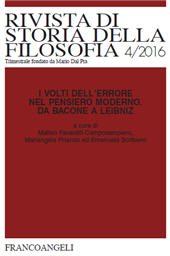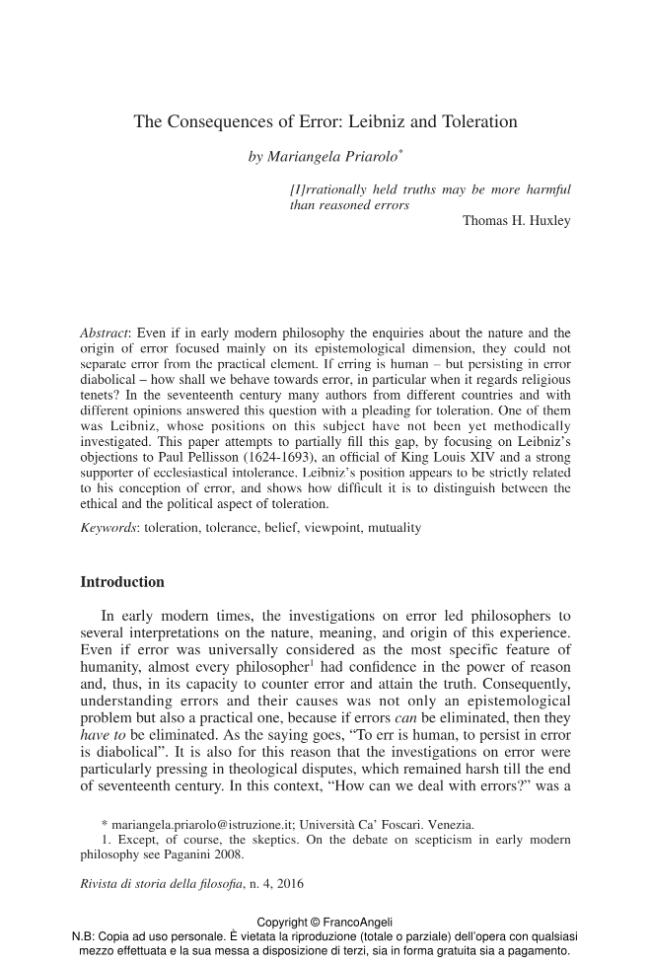The consequences of error : Leibniz and toleration
745-764 p.
Even if in early modern philosophy the enquiries about the nature and the origin of error focused mainly on its epistemological dimension, they could not separate error from the practical element. If erring is human - but persisting in error diabolical - how shall we behave towards error, in particular when it regards religious tenets? In the seventeenth century many authors from different countries and with different opinions answered this question with a pleading for toleration. One of them was Leibniz, whose positions on this subject have not been yet methodically investigated. This paper attempts to partially fill this gap, by focusing on Leibniz's objections to Paul Pellisson (1624-1693), an official of King Louis XIV and a strong supporter of ecclesiastical intolerance. Leibniz's position appears to be strictly related to his conception of error, and shows how difficult it is to distinguish between the ethical and the political aspect of toleration. [Publisher's Text].
-
Articoli dello stesso fascicolo (disponibili singolarmente)
-
Informazioni
Codice DOI: 10.3280/SF2016-004012
ISSN: 1972-5558
PAROLE CHIAVE
- Toleration, tolerance, belief, viewpoint, mutuality



